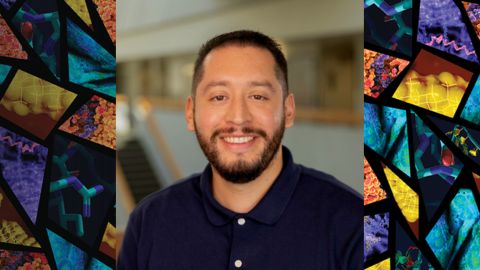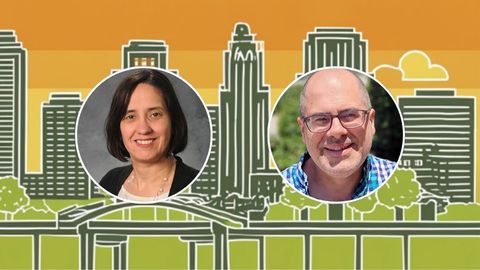
Beauty at a geographic intersection
I am a recent transplant to San Antonio, having moved here from Dallas where I was a professor of radiation oncology at the University of Texas Southwestern Medical Center. In 2019, I was recruited by the University of Texas Health Science Center at San Antonio where I am a professor of neurosurgery and biochemistry and molecular biology and vice chair (research) of neurosurgery.

My lab is housed in the South Texas Research Facility within the sprawling Medical District, which includes other research institutions, hospitals and the Veterans Affairs Medical Center. My lab works on DNA double-strand break repair mechanisms with the translational objective of targeting DNA repair pathways to augment glioblastoma therapy.
I decided to move here primarily because UT Health San Antonio recently recruited several outstanding DNA repair researchers; the university is poised to become a world-class genome stability research hub. In my few years here, I have enjoyed working on collaborative projects with some of the best minds in DNA repair.
I also enjoy working here because the center is bounded on one side by nature preserves and trails — watching deer meandering outside your lab as evening falls is simply priceless. San Antonio is a green and charming city with a distinct culture of its own, and the vibe here is laidback and friendly. It also doesn’t hurt that here you can find some of the most authentic Mexican cuisine outside of Mexico.
When I moved to San Antonio, I was perplexed by the three different nightly weather forecasts on the local TV channel. I learned later that the city lies at the intersection of several distinct geographic areas, all undeniably beautiful. Drive an hour north, and you will find yourself amongst the incredibly green rolling hills of Texas wine country. Drive a couple of hours south, and you will hit the pristine beaches of the Gulf Coast. Drive a few hours west, and you will find yourself mesmerized by the stark beauty of the desert landscape. Drive east … well, I’ve never driven east — that would just take me back to Dallas.
Submit an abstract
Discover BMB, the annual meeting of the American Society for Biochemistry and Molecular Biology, will be held March 23–26 in San Antonio. Abstracts for poster presentations and spotlight talks will be accepted through Nov. 30. See the poster categories and spotlight talk themes.
Enjoy reading ASBMB Today?
Become a member to receive the print edition four times a year and the digital edition monthly.
Learn moreGet the latest from ASBMB Today
Enter your email address, and we’ll send you a weekly email with recent articles, interviews and more.
Latest in People
People highlights or most popular articles

2025 ASBMB election results
Learn about the new president, secretary, Council members and committee members.

2025 PROLAB awardees announced
Seven early-career scientists receive grants to advance their research by working in North American labs.

Yu receives early career research award
He will receive $35,000 to fund his research on the proteotype and cell signaling.

Neurobiology of stress and substance use
MOSAIC scholar and proud Latino, Bryan Cruz of Scripps Research Institute studies the neurochemical origins of PTSD-related alcohol use using a multidisciplinary approach.

Hargrove recognized for leadership
He is among more than 50 individuals from the Iowa State University College of Liberal Arts and Sciences to receive recognition for their departmental dedication and contributions.

Teach, learn & transform biochemistry education
Meet the co-chairs of the 2025 ASBMB meeting on reimagining undergraduate education in the molecular life sciences to be held July 24–27, 2025 in St. Paul, Minnesota.

